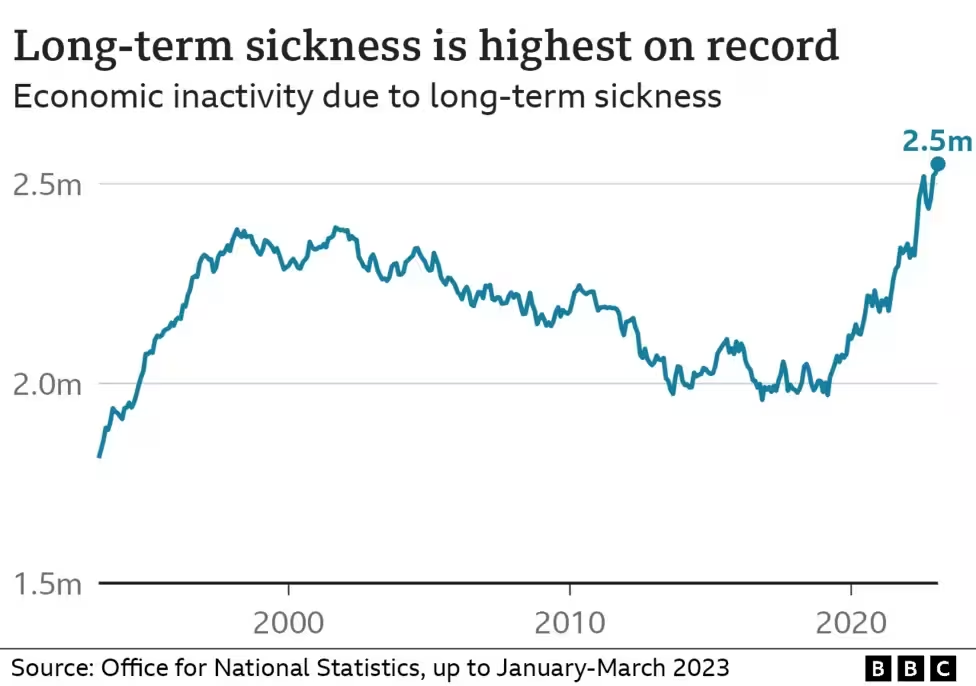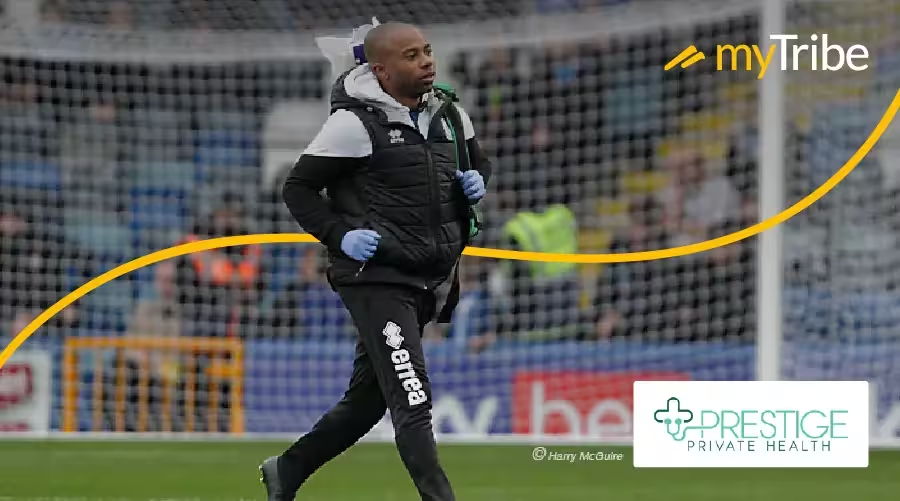The doctor will see you now...webcam at the ready!
With NHS waiting lists at record lengths, there's been a well-documented rush of individuals and employers taking out private health insurance, with one of the benefits almost always being access to a private GP "virtually", 24/7. But is it enough, and what happens if you need a physical examination? In this article, we look at the gap between virtual and physical primary care and talk with a serving NHS GP, Dr Wesley Tensel who has brought to market a new concept specifically for employers that want to protect the health and wellness of their team.
What does the public think of healthcare services?
In June 2023, we surveyed the British public in partnership with YouGov to get the current view of healthcare in the UK. In that survey, only 58% of UK adults said they were either "Totally satisfied" or "somewhat satisfied" with their NHS GP, with 38% showing some level of dissatisfaction. In the same survey, we asked what people's biggest worries were about healthcare in the UK, and "NHS GP waiting times and availability" was the second most frequent choice, with 51% of respondents choosing it as one of their top three concerns, second only to "waiting times for treatment via the NHS".
Dr Tensel said: “We are increasingly seeing patients being told that it can be a 2- 4 week wait to be assessed by a GP, and often these are only remote slots and not even face to face. The workload is clearly increasing for GPs, but it is then the patients who end of suffering, which at times can lead to acute admissions via A&E or out of hours providers.”

Focusing on primary care: are there more or fewer NHS GPs?
NHS Digital data published in February shows that around 45,600 GPs were working in the NHS at the end of January 2023, which is approximately 2,230 more than in December 2019 (before the pandemic). However, that's the headcount and only some work full-time. The "Full-Time Equivalent (FTE)" GPs is a fairer representation of capacity. NHS Digital still shows an increase of around 1,900 between December 2019 and January 2023, so all good, thumbs up? Not quite. As detailed in this article from the fact-checking website Full Facts, the increase has been fuelled by a sharp rise in trainee GPs being counted in the overall figures. Speaking with Full Facts, The Royal College of GP's (RCGP) chair Professor Kamila Hawthorn said: "We would advise against counting trainees, as whilst GP trainees do see patients, they are primarily training to learn, and will be seeing patients under supervision."
Removing trainees and locums from the overall FTE count shows that there's actually been a reduction in fully qualified permanent NHS GPs from 27,120 in December 2019 to 26,630 in February 2023, and looking back a little further, there's a bigger drop from a peak of 28,680 in March 2016.
So yes, the number of fully qualified GPs has reduced in recent years, but there are trainees in the pipeline - potentially offering a glimmer of hope for the future.
Long-term sickness is now at record levels.
According to Office of National Statistics data to March 2023, long-term sickness is at the highest level on record, and while the pandemic can be blamed for that in part, the reduced number of Fully Qualified GPs has made it more difficult for people to get the medical care they need.

Enter private health insurance and the rise of "virtual GPs."
Look at any of the leading health insurers' policy information and even some life insurance and income protection plans, and you'll find that they offer access to round-the-clock "virtual GP" services. Speak to a private GP by phone or video call anytime in the comfort of your home.
It's an attractive offer, and coming from a father of two, both of whom are under 5, it's a game-changer. Whereas previously, if one of the kids got unwell on a Friday afternoon, our only option would be NHS 111, then potentially sit for hours in a treatment centre, we can now speak with a private GP, and if needed, they can prescribe or suggest the best next steps. The kids can then be on the road to recovery by the time nursery comes around on Monday morning. So yes, virtual GPs are a fantastic convenience, however, they have limitations.
Dr Tensel shares his first-hand experience of patients speaking to a virtual GP, just to have to wait to see their NHS GP for a physical examination:
“I have noticed since the Covid pandemic that we have been seeing an increasing number of patients who have spoken to the virtual GP, provided as part of their company benefits package, but have then been told to see their NHS GP for either an examination or further investigations such as blood tests. They feel let down and that this defeats the object of having this “24/7” access, as they are still then being made to wait to see their NHS GP. This was one of the reasons we started Prestige Private Health, so patients could have everything dealt within one visit at a time convenient for them.”
Virtual GPs sometimes mitigate the fact they can't see you by offering to refer you to a specialist for a physical exam. However, there's likely to be a wait, and those consultations will depend on your policy terms.
So, as you can see, even with health insurance, there's a gap in primary care, where if you need a physical examination, your options are; to go back to the NHS or be referred to a specialist, both of which could involve a bit of a wait.

A unique subscription-based private GP service for employers
Having seen the gap between NHS GPs and virtual GPs offered by insurers first-hand, Dr Wesley Tensel has started a unique private practice explicitly aimed at employers to help keep their workforce fit and well.
“With the NHS currently under so much pressure and waiting times to see a GP unacceptably long, we have found a gap in patient care. At Prestige Private Health we offer employers a subscription-based model where each company has their own Private GP who is available remotely but more importantly will always see clients face to face if clinically required.
For larger companies we can actually put a GP in the workplace either part or full time depending on requirements. This would result in an employee who is unwell being able to book a time slot, then going to see the doctor when they have some free time in their day. People are extremely busy nowadays and often unable to beat the mad 8am rush to get a GP appointment. We feel when someone is unwell, that is when they need to see a doctor and not in two weeks’ time. With Prestige Private Health if an employee is unwell, we can be their first port of call to help manage their situation.
Giving employees speedy access to quality medical care
In the current model of private medical insurance, if a client went to work and started with abdominal pain or earache, they would not call their insurance provider and ask to see a private surgeon or ENT consultant, they would need to be see on the day by a GP – this is where Prestige Private Health fills that gap. Unlike some private providers there is no extra charge for our doctors to write prescription or do private letters
A company GP builds rapport with your workforce
We also believe in the benefit of continuity of care, so clients can build a rapport with their company GP, who over the course of their career with that company will become familiar and more likely to approach the doctor with any concerns. ith prevention being better than cure, we also offer annual health checks, including blood tests and specific tumour markers, so we can pick up underlying medical conditions and then work with the client to improve their health. all our packages come with an included Employee Assistance Programme, offering 24/7 access to mental health counsellors.
Finally, there are no health exclusion criteria – we will see any employee whether they have multiple comorbidities or the fittest person in the office.
Dr Wesley Tensel is an NHS Partner GP currently working in Manchester, he’s been the team doctor for Rochdale AFC for 14 years, and is the co-founder of Prestige Private Health, which launched in late 2022. To find out more about the services offered by Dr Tensel and his team, click here to visit their website.
Disclaimer: This information is general and what is best for you will depend on your personal circumstances. Please speak with a financial adviser or do your own research before making a decision.
Frequently Asked Questions
What is a private GP?
A private GP is the same as an NHS GP, albeit you will pay for their service and any prescriptions they write. Private GPs are just as well qualified as their NHS counterparts; it's just they are paid by their patients directly rather than via the NHS.
Are private GPs better than NHS GPs?
In terms of medical qualification, private GPs will be similar if not the same as NHS GPs; there shouldn't be any difference in that respect. However, what you find with private GPs is that appointments are longer, and therefore, they have more time with patients, which can lead to a better outcome.
How long is an appointment with a private GP?
Private GP appointments are typically 30 minutes long, although this will vary from practice to practice.
How much do private GPs charge?
GPs' price varies significantly depending on where you are in the country and the practice themselves. Most practices include pricing on their websites, so that's always a good place to start.






